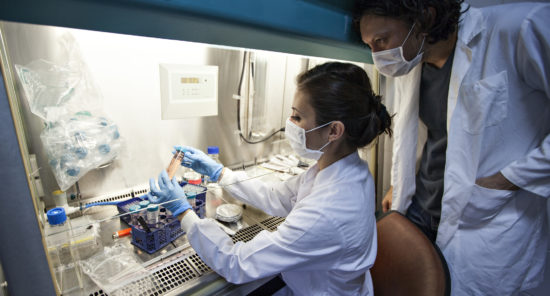Previously published trials have shown that colonoscopic infusion- or enema-delivered fecal microbiota transplantation (FMT) treatment can lead to remission in patients with active ulcerative colitis (UC). Researchers assessed an alternative, orally-delivered lyophilised FMT and reported that it too could induce remission of active UC. The findings were published in The Lancet Gastroenterology & Hepatology.
The study included 35 patients who received 2 weeks of amoxicillin, metronidazole, and doxycycline, after which 15 received FMT and 20 received placebo over 8 weeks. The primary outcome of the trial was corticosteroid-free clinical remission with endoscopic remission or response at week 8, after which patients who responded to FMT were randomized again to either continue or discontinue for an additional 48 weeks.
At 8 weeks, 8 patients (53%) in the FMT group achieved the primary endpoint compared with 3 (15%) in the placebo group (difference, 38.3%; 95% CI, 8.6-68.0; P=.027; odds ratio, 5.0; 95% CI, 1.8-14.1). During the induction period, 10 patients (67%) in the FMT group and 17 (85%) in the placebo group experienced adverse events, which the authors noted were generally mild gastrointestinal complaints. Notably, after re-randomization, all 4 patients who continued FMT had clinical, endoscopic, and histologic remission at week 56 compared with none of the 6 patients who were withdrawn.
Ultimately, the investigators proposed that oral FMT might be a viable and effective treatment option for patients with UC.
Reference: Haifer C, Paramsothy S, Kaakoush NO, et al. Lyophilised oral faecal microbiota transplantation for ulcerative colitis (LOTUS): a randomised, double-blind, placebo-controlled trial. Lancet Gastroenterol Hepatol. 2022;7(2):141-151. doi:10.1016/S2468-1253(21)00400-3
Source: https://www.thelancet.com/journals/langas/article/PIIS2468-1253(21)00400-3/fulltext








